In the age of Top Chef and celebrity-driven restaurant empires, the stars of the kitchen have been turned into a pop-culture phenomenon. But make no mistake about it: Beyond the glitz of reality TV, working in a professional kitchen is still one of the tough gigs around. Slaving over a burning stove on a Saturday night is anything but glamorous, and yet the hype about being a chef has made the “rock star” analogy ubiquitous. Think that you are under-paid, over-worked, and under-appreciated in your current job? Spend a little time with a line cook (if he or she can find any to spare) and compare notes about who works more, and for how little.
With that said, being a chef is also undeniably bad-ass. It is a job that is grueling and stressful, but also fun, creative, and rewarding—at the end of the day, you are feeding people and making them happy.
We talked to a group of heavy-hitting chefs and asked them for advice on how to break into the industry and earn your stripes—in other words, essential tips for making the journey from dishwasher to chef de cuisine. Don’t be fooled—there are no promises here. A culinary degree alone won’t make you a chef, and while preparing a perfect coq au vin for your friends at home is mad impressive, it means nothing to a soldier behind the line.
With that, we give you some no-nonsense rules for success, gathered from those who have already charted the course. Steel yourself for some hard work, get yourself some good knives, and plan on setting some time aside to stage (that means working for free) if you think you’ve got what it takes. No Quick-Fire Challenges will be involved.
Dan Kluger
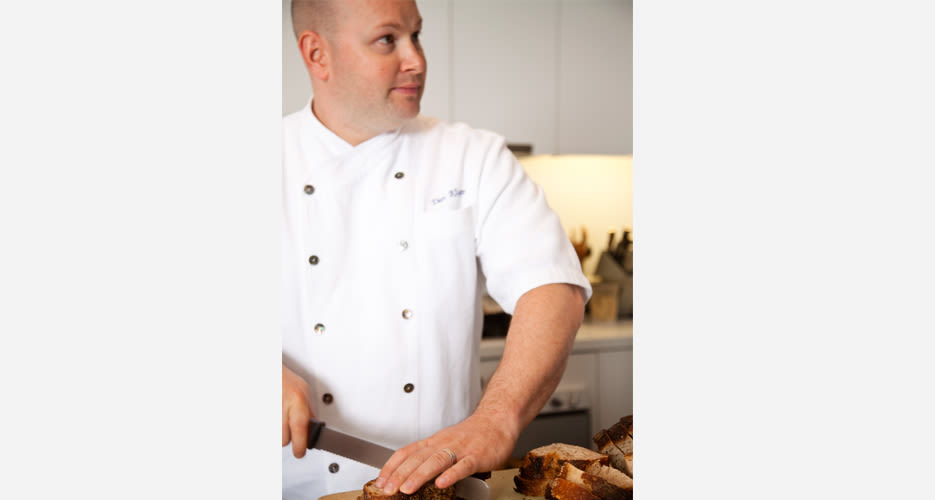 Chef de cuisine at ABC Kitchen, winner of the James Beard Award for Best New Restaurant in 2011.
Chef de cuisine at ABC Kitchen, winner of the James Beard Award for Best New Restaurant in 2011.Golden Rule:
"There’s a ton of time, energy and sacrifice that goes into becoming a chef. Without passion and love for cooking, the industry, and all that comes with it, it’s going to be very tough to be happy as most of your time is committed to the food and restaurant before anything else." On cooking school: "Cooking school is great to learn the fundamentals of French techniques, such as the mother sauces and proper knife cuts. It’s also great to learn the basics of product knowledge. There are a lot of resources and programs set-up in culinary schools that are great. I never went, and wished I had in order to get some of that 'classical' training. It’s tough because a culinary degree doesn’t automatically guarantee you anything in the industry, and as cooks positions are notoriously low paying, it’s a tough position to be in with all the debt. As opposed to many degrees that are career/industry specific (i.e., pharmacy, optometry, etc.), the degree doesn’t equate to becoming a chef." On what to read: "A couple great cookbooks that are my favorite are Tom Colicchio’s Think Like a Chef; Jean-George’sSimple Cuisine (a classic!); any of Michael Ruhlman’s books, such as The Making of a Chef; all of the Dornberg and Page books; and any of Mario Batali’s books, especially one about learning to cook with him by Bill Buford called Heat." On staging in kitchens: "A trail or stage is the way to go. Restaurants where you are excited about the chef’s food, kitchen environment, and a place where you see yourself learning and growing is ideal. Within the industry, you’re constantly learning and growing. It’s ideal to be in a teaching kitchen where you can see the sous chefs and chef fostering your growth as a cook. The unfortunate reality today is that with labor laws the way they are, many restaurants will not offer stages." On how long to stay in one kitchen: "As a line cook, I think a year commitment is what most chefs will ask for. It’s respectful to honor that and beneficial for a cook’s growth as well. I personally think one-and-a-half to two years is smarter, as I like cooks to go through all the seasons more than once, so they can see how the same chef/restaurant may use the same ingredients a totally different way the next year." On moving to a city: "For the most part, a large town such as New York, San Francisco, or Chicago would be great. The larger metropolitan areas that are known for food or even burgeoning food cities such as Portland are great locations. The catch to a small town would be there is still a bit of a culture enriched by food history." On Tools you Need:"There are essential tools such as Japanese knives, a vegetable peeler, mandolin, and perhaps a microplane. What’s really important is to make sure that you have great water stones and that you know how to keep your knives sharp. No matter what tools you have, the onus falls on you to respect and care for your tools as they are an extension of you."Eric Ripert
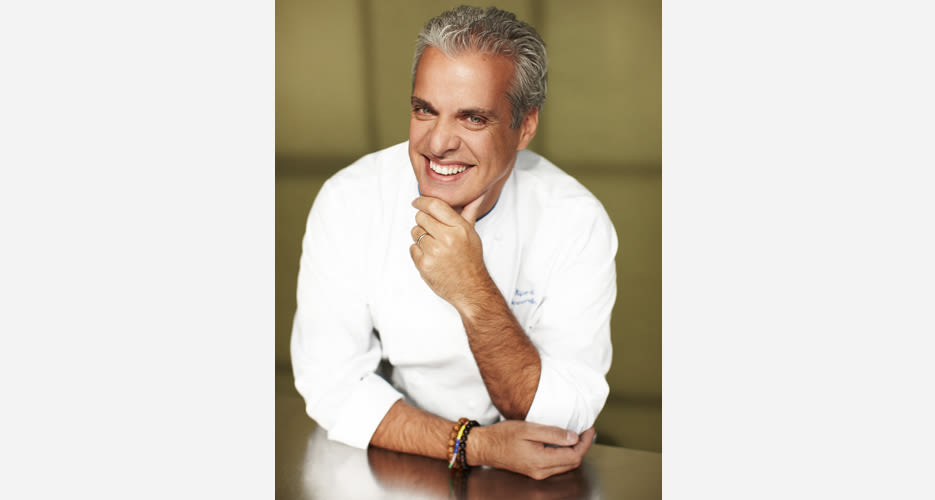 Executive Chef at Le Bernadin, winner of the James Beard Award for Outstanding Chef
Executive Chef at Le Bernadin, winner of the James Beard Award for Outstanding ChefGolden Rule:
"Start from the bottom and work your way up." On kitchens and school: “It is important to go to a professional kitchen and train for a short amount of time to see if you think you are a fit for that world. If you believe you are and you have tested your passion and still want to proceed, I recommend you attend a serious cooking school. When you finish school, get into a very good restaurant and start from the bottom and work your way up. Be patient and learn your craft. It can take a long time, but it's worth it if it is your dream.”Christina Tosi
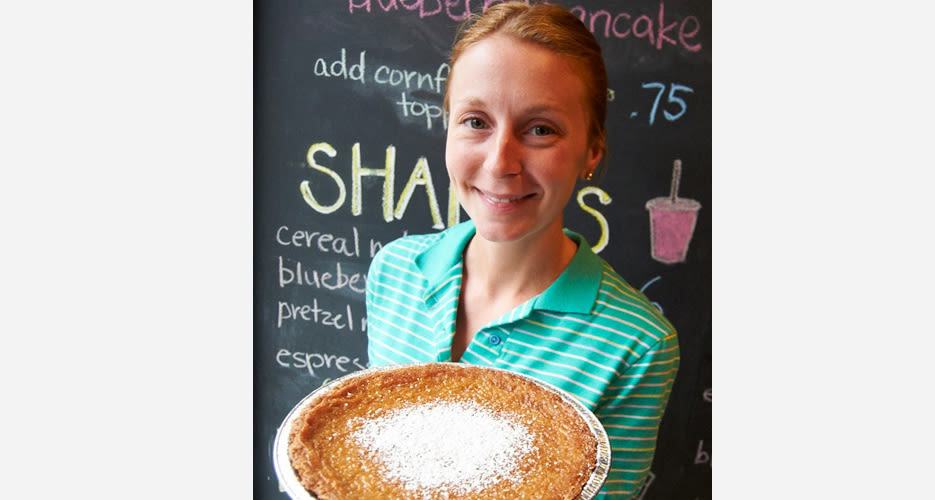 Pastry chef and owner of Momofuku Milk Bar, winner of the James Beard Award for Rising Star Chef
Pastry chef and owner of Momofuku Milk Bar, winner of the James Beard Award for Rising Star ChefGolden Rule:
"Taste. Educate yourself. Hone your skill. Don't give your opinion unless it's asked for. Stay Humble. Stay hard working. Stay true." On cooking school: "I went to cooking school. The French Culinary Institute did me well, taught me a wealth of things that would have taken me years to learn in kitchens. Provided a great springboard of knowledge, understanding and technique when I hit the ground running in professional kitchens. But years of kitchens taught me things I never could have learned at cooking school, as well." On what to read: "Read what interests you, read to learn, read to be inspired. Cook as you read. Apply what you've read. Blogs and published works online and in magazines can have just as much takeaway knowledge as a cookbook or a text book. There's no better learning tool than hands-on experience." On staging in kitchens: "I believe the stage process is what gives you legs, gives you confidence to learn skills, make mistakes, and gain confidence in a kitchen before making the commitment to being a cook in a professional one. Stage until you find the right fit. Deciding to be a cook in any chef's kitchen is a commitment, not to be taken lightly." On how long to stay in one kitchen: "Any less than a year is burning a bridge in restaurant terms. Thinking you've learned everything you can within a year in any kitchen is an all-too-common mistake. Time and humility will get you much further in this industry than most anything else!" On moving to a city: "It's hard to say. I started working in kitchens in Western, VA, but quickly knew I wanted to bark with the big dogs in NYC." A helpful tip: "Every kitchen requires something different—a tasting spoon is essential. If it doesn't taste good, no one really cares how nicely it was cut (note: this is spoken like a true pastry chef!)."Michael Ferraro
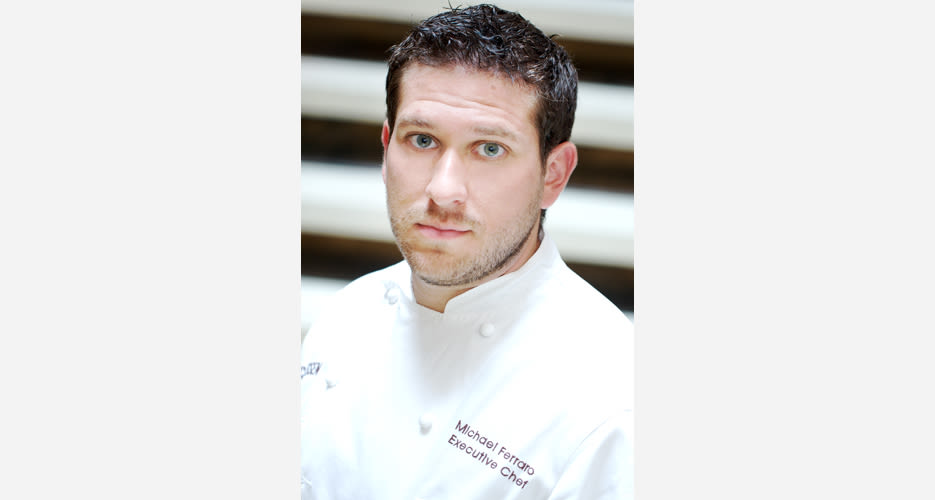 Executive chef and partner at Delicatessen and Macbar
Executive chef and partner at Delicatessen and MacbarGolden Rule:
"The beginning of your career is like a blank canvas—the more you see, the better." On cooking school: "Being a graduate of the CIA, I think culinary school is worth it because it is the best and quickest option. You learn cooking principles and the fundamentals, and you gain a fast track for your career by learning proper techniques rather than learning just in the field. Expect to gain a basic understanding of cooking, but don’t expect to graduate being the chef." On what to read: "Cookbooks are especially great in the beginning of one’s career to inspire and drive passion. It’s best to find books from chefs and cuisines that you’re interested in." On staging in kitchens:"Yes, [they’re] very important in and after school. It gives you a sense of what’s really out there. The beginning of your career is like a blank canvas—the more you see, the better. You will learn from both great and bad experiences, giving you a quick look at the workings of a restaurant." On how long to stay in one kitchen: "You should stay a minimum of one year. One begins to learn the ropes after four months. If you’re really good, then you’d be comfortable at the busiest station after a year, and I recommend being good at all the stations before deciding to leave the restaurant." On moving to a city: "Although there are great cuisines all over, mega cities have high talents, expertise, and a lot to learn from. Being partial to New York City, I think it has the most to offer in this industry right now." On tools you need: "The knife is absolutely the most important tool to have. [You have to learn] how to maintain it." A helpful tip: "The most important tip is to develop a realistic timeline for attaining your goals. Being a chef is not just cooking, but also operating the whole business. It takes many years to perfect both your cooking and management skills."Dale Talde
 Chef and partner at Talde, Pork Slope, and Thistle Hill Tavern; former Top Chef contestant.
Chef and partner at Talde, Pork Slope, and Thistle Hill Tavern; former Top Chef contestant.Golden Rule:
"This is what I say about cooking and the culinary industry as a whole: You should be obsessed with it. It should be a freakish obsession that takes over your life." On cooking school: "I think cooking school is great. It’s something that if you have the money and time to do, then you should go. If you don’t, don’t be discouraged, because real-life kitchen experience is the best thing in this industry. Nothing will teach you like that." On what to read: "Any piece of material, any piece of literature—whether it be a book, cookbook, magazine—that talks about cooking or styles of cooking or chefs that you’re interested in, you should get your hands on and read. If you’re young and just getting into this industry, it should be your number one priority. One book I’d suggest reading? The Soul of a Chef: The Journey Toward Perfection by Michael Ruhlman." On staging in kitchens: "Eat there. Staging is always the best thing, and it can happen from just eating at the restaurant. That’s how I got 90% of the employees at Talde (besides my main sous chefs). Guys in the neighborhood have just stopped by the restaurant to eat and they’ll love the food and be like, I want to be part of the team, what can I do?" On how long to stay in one kitchen: "Your time in a restaurant is determined by what you’re giving to the restaurant and what they’re giving to you. Is there more knowledge to be gained? There’s always more to be learned, but at some point, you’ll want to move on and experience more things. But the industry standard is at least a year. Stay less than that and you’re doing yourself a disservice." On moving to a city: "Of course there’s value staying in a small town—any restaurant is valuable because you’ll learn something. But for me, putting yourself in a situation where you’re uncomfortable will serve you best because you’ll work that much harder. If you’re from a city, you have a lot of things besides your job to take your attention (your friends, girlfriend/boyfriend, your family, etc.), but moving somewhere that’s not familiar, that’s where you can truly focus on your passion. When I first moved from Chicago to New York, I didn’t know anyone. I just worked all the time. I had no problem working 15-hour days or however long they needed me. I had nothing better to do than work since I didn’t really know anybody. That’s when you can really dedicate yourself to your craft." On tools you'll need: "First, get yourself some nice spoons. Then you’ll need a sharp knife—and you’ll need to learn how to sharpen it. Also, get yourself a fish spatula and a peeler. At entry-level you can do anything with those four things. And don’t forget to bring them with you!" A helpful tip:"Do your homework. Look at the menu. Know the chef. Know the restaurant’s story. Know the owners. Be nice! When you’re going to do a stage, call the chef and ask for anything specific you should be bringing or wearing. You don’t want to be that guy who shows up in the Le Bernadin kitchen wearing chili-pepper chef’s pants. If I was asked by an aspiring chef for any tips or advice before getting into the industry, I would first ask him or her for their opinion on cleaning the bathroom or washing the dishes in a restaurant. If this is your career sometimes you’re going to have to throw away the garbage or do the dishes. If you think you’re above doing shit like that, then be the weekend cook who cooks fancy dinner parties for friends and family. Don’t step into a real kitchen."Amanda Cohen
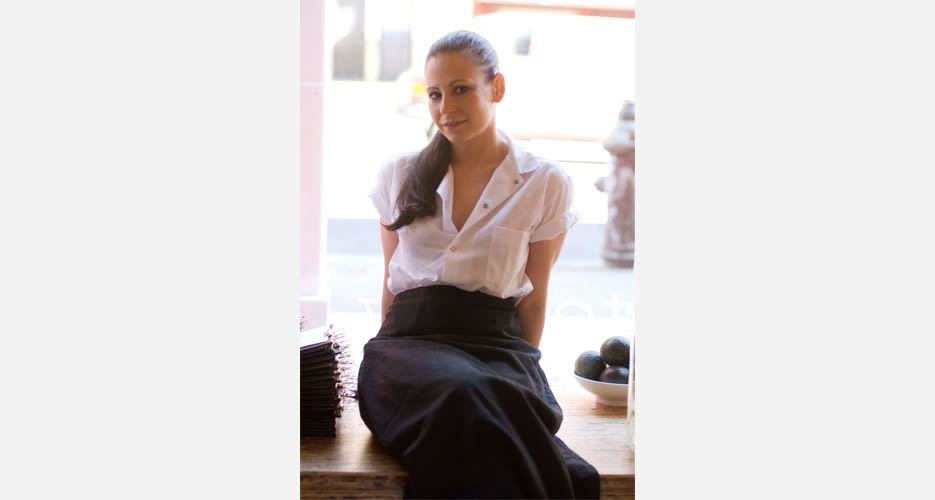 Chef-owner of Dirt Candy, StarChefs "Rising Star" award winner, author
Chef-owner of Dirt Candy, StarChefs "Rising Star" award winner, authorGolden rule:
"The first few years of working in a professional kitchen are going to shape the rest of your life, so don’t slack." On cooking school: "I have a hard time recommending that anyone go to cooking school because of the amount of debt you take on. There just aren’t enough jobs that pay a starting cook enough to make a living and pay off their student loans. That said, I went to cooking school because I needed a place to learn where I wasn’t on the job, where I could ask questions, and where screwing up was allowed. Some people can learn on the job, but I couldn’t." On what to read: "Reading cookbooks is a great way to become a food writer. To be a cook, you have to be eating—everywhere, all the time, always different. Reading cookbooks will give you some theory and it’ll expand your horizons, but your central activity needs to be trying new food, and that means actually putting it in your mouth and ingesting it. Not just reading about it." On staging: "I think it’s important to stretch yourself and get out of your comfort zone. Throughout your career you should try to stage in restaurants you wouldn’t normally gravitate to; if you love pizza, try to stage in a Chinese restaurant at one point if you can. I cook vegetables, but I just helped out another chef working a pig roast. It’s how you bring new techniques to the table." On how long to stay in one kitchen: "Get on a line in the toughest, busiest kitchen you can. Stay there for a year. The first few years of working in a professional kitchen are going to shape the rest of your life, so don’t slack. Don’t call in sick, don’t show up late, don’t screw off. Get on that line no matter what and realize that for that year, your best will never be enough. You will have to get better every day, or you will crash and burn. By the end of the 12 months you’ll either realize cooking in a professional kitchen isn’t for you, or you’ll be on the way to having an unbeatable technique that will support you for the rest of your life." On moving to a city: "It doesn’t matter. You need a real kitchen that does real business and you need to stick with it. Don’t look for a mentor, don’t look for excitement. What you need to do is learn how to work a busy line, and how to keep pushing yourself. First, figure out how to handle the workload, then figure out how to make the food good, then once you’ve got that, figure out how to be consistent. Then, once all that is under your belt, you can figure out how to make it better." On tools you need: "Not really any. A lot of people think you need a fancy knife, the same way a lot of middle-aged guys think they need a fancy car. Your knife should be sharp and you shouldn’t care about losing it. I used a free knife I found in a gift bag for years and right now I’m using a basic Wusthoff. As long as it can stab a carrot, it’s good enough for me." A helpful tip:"Whenever I’m out with other chefs we all bemoan the quality of staff out there. These days, fewer and fewer people want to put in the years and really work. Everyone wants to be a superstar, they all think being on TV is the be all and end all, and most of them aren’t good enough in a crunch. So if you’re willing to never complain, never blame, and always bust your butt, there are jobs out there for you. But it’s harder than you think. Cooking in a professional kitchen will break you down, and it’ll also build you back up again, but you have to be willing to commit to going beyond your comfort zone." Check out Cohen's full guide to becoming a chef.Tom Colicchio
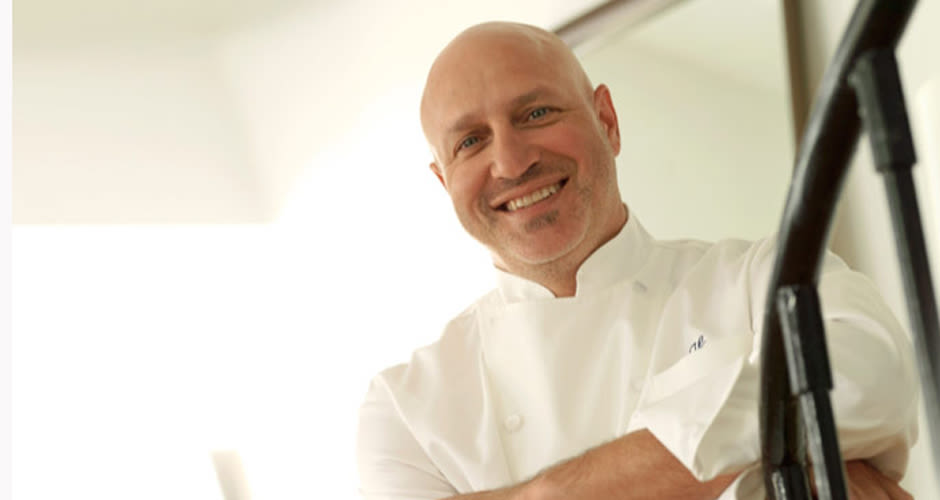 Former co-owner and chef of Gramercy Tavern; owner and chef of Craft; winner of the James Beard Award for Best Chef-New York; Top Chef host.
Former co-owner and chef of Gramercy Tavern; owner and chef of Craft; winner of the James Beard Award for Best Chef-New York; Top Chef host.Golden Rule:
"You need to immerse yourself totally in the world of food; everything else takes a back seat." On going all-in: "The best way to become a chef is by total immersion. You need to immerse yourself totally in the world of food; everything else takes a back seat. Read everything you can and save money to go out to eat. There is no substitute for eating and trying different dishes and cuisines."Bradley Ogden
 Chef and owner of Lark Creek Inn and Bradley Ogden at Caesars Palace, as well as One Market Restaurant, Lark Creek, Yankee Pier, Parcel 104, and Arterra in Del Mar. He was awarded the title Best Chef California by the James Beard Foundation.
Chef and owner of Lark Creek Inn and Bradley Ogden at Caesars Palace, as well as One Market Restaurant, Lark Creek, Yankee Pier, Parcel 104, and Arterra in Del Mar. He was awarded the title Best Chef California by the James Beard Foundation.Golden Rule:
"Try it for two years and work in a restaurant kitchen. It's not always what you think it is. It's no Food Network celebrity. It's hard work. Make sure you're doing it for the right reasons." On cooking school: "Number one and foremost—anything you do that comes from the heart and soul will bring you success. Whether you learn at a culinary school or by coming up through the ranks in the business, you need to have passion. Whatever you do will require it because of the time and energy devoted. You also need to build a foundation. Culinary and hospitality management can be a foundation to your career. The knowledge will bring you more expertise. Hard knocks are almost more important. It's important that you have at least two years experience before going to culinary or hospitality school, and business management is important too." On what to read: "The new Professional Chef book from the CIA. All the old James Beard books are great." On staging in kitchens: "Stages are important. It's important to complete a one to two year stage—whether that's in your community or elsewhere just depends on your goal. It can be harder to find these opportunities now, because there are so many legal employment entanglements involved. Your choice should be influenced by what you want to learn—techniques, skills, or flavors/cuisines." On how long to stay in one kitchen: "It all depends on your goals. I didn't jump around that much. As a young chef, I was at the American Restaurant in Kansas City for five years. If you want front and back of the house experience you could move around, but it depends on the specific situation. I was working three jobs while going to CIA to make ends meet and gain the proper experience, and I graduated as 'most likely to succeed.'"On moving to a city: "I think you can stay in your local community, but travel does open educational opportunities and flavor experiences that bolster your knowledge and frame of reference—i.e., a baguette fresh from an oven in Paris, curry in Thailand, sushi in Japan. You know how it should be. The you learn the real taste profile and can draw from that. Caribbean, Cambodian, whatever your style, culinary travel does help in combination with local market employment." On tools you'll need: "To have the right tools is important. The Internet is great so that you can see and learn and hear from others by using education tools and videos. The right knives doesn't have to be state-of-the-art as long as they are quality and you know how to handle them. Japanese blades are great, they are the best. Also, a great fish knife is helpful, and maintaining your knives is key. Don't buy aluminum pans; buy solid stainless steel that you can use for a lifetime. A good blender and food processor is key too, though you don't have to have every little gadget."Marco Canora
 Chef-owner of Hearth, Terroir, and Insieme, as well as a two-time James Beard Award nominee and author
Chef-owner of Hearth, Terroir, and Insieme, as well as a two-time James Beard Award nominee and authorGolden Rule:
Be patient. On not rushing into things: "Be patient. Just because you are offered a chef job doesn't mean that you are ready for it. This is a craft and it takes time, sacrifice and commitment to are needed to succeed. Look to Japan as a model—sushi cooks make rice for a decade before they even think about touching fish. [Thomas] Keller opened the French Laundry at 40. Danny Meyer (not a chef, I know) ran Union Square Cafe for a decade before opening his second restaurant. Cooks today move around too quickly."- Resource: http://firstwefeast.com/
Không có nhận xét nào:
Đăng nhận xét